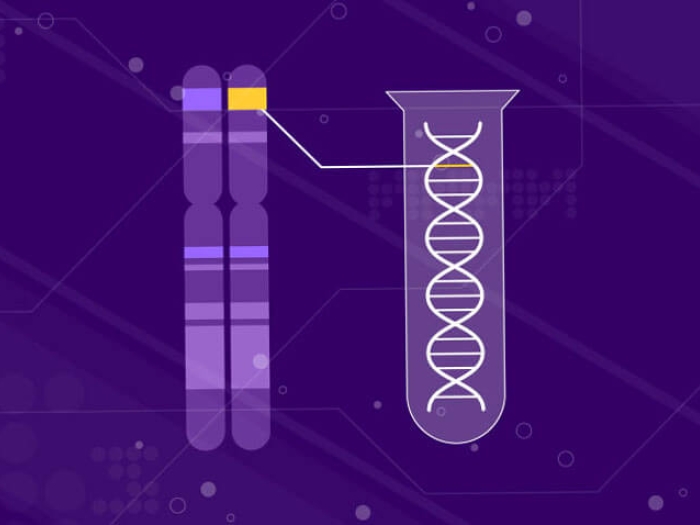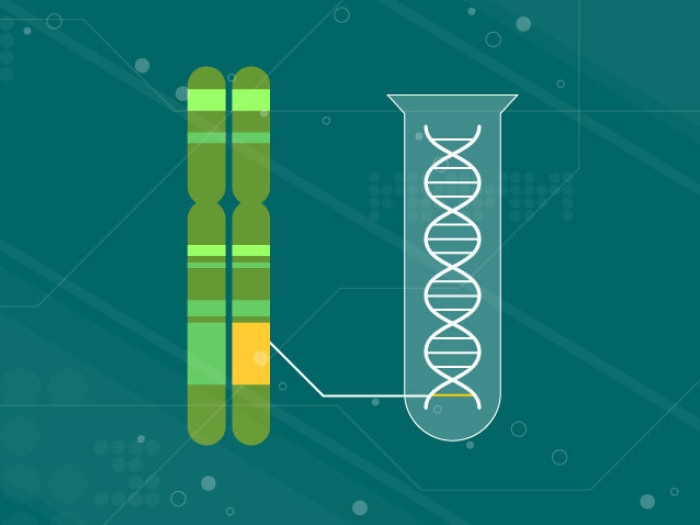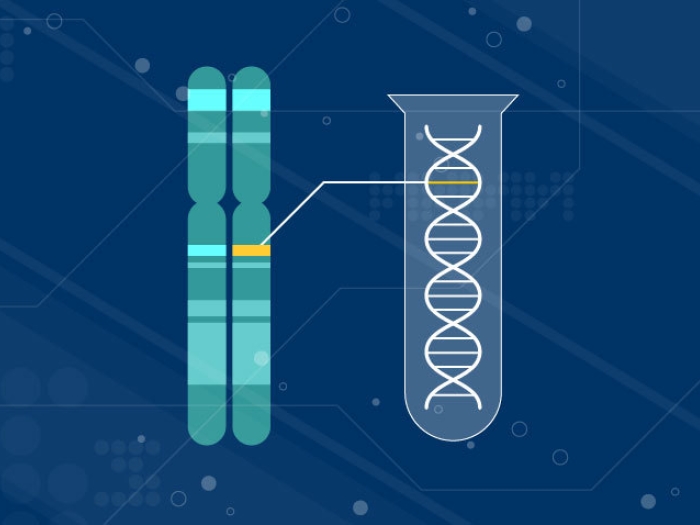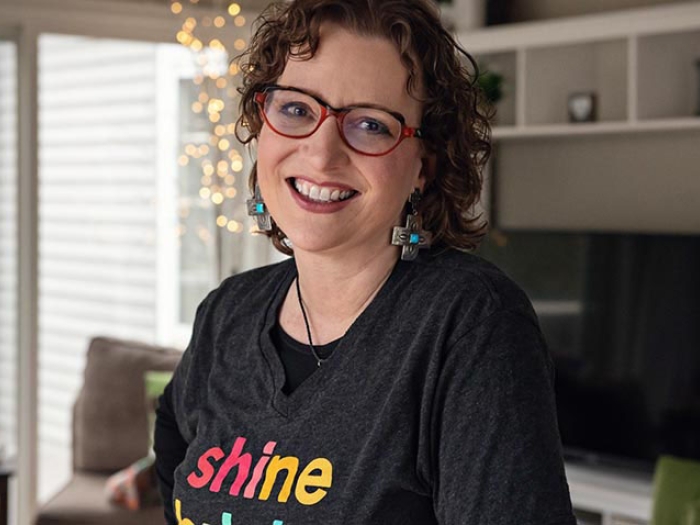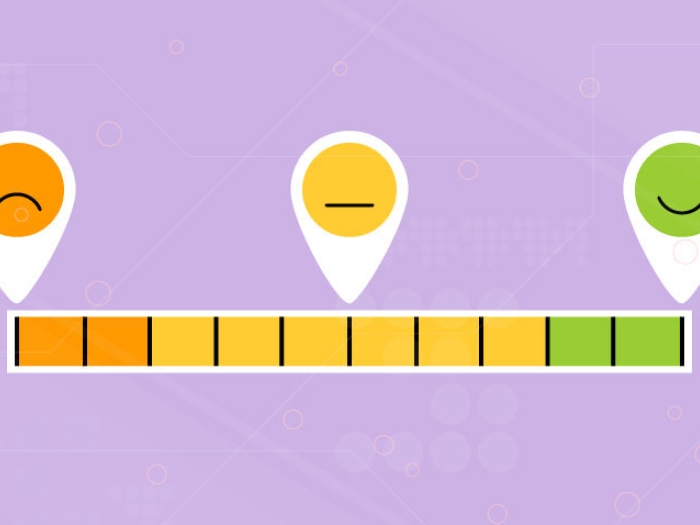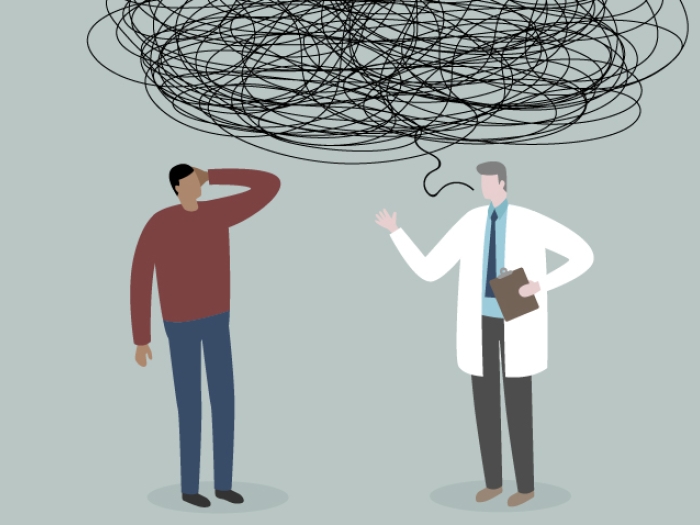When a parent has cancer, children should be part of a conversation. Tips for talking to kids about the disease.
7:00 AM
Author |

Cancer can be uncertain. But one thing that's clear is that communication with children is essential when a parent is ill.
MORE FROM MICHIGAN: Sign up for our weekly newsletter
Children have vast imaginations and can make the situation worse than reality.
"Depending on the child's developmental level, a kid might think the cancer is their fault or that cancer is contagious," says Madison McTevia, a child life specialist at the University of Michigan Comprehensive Cancer Center. "It is important to talk to your kids in language they understand and make sure they know who to go to with questions."
Generally, children can sense changes in the family routine and whether their parents are worried or upset. It is always better to speak to a child soon after receiving a diagnosis rather than to wait. Communicating honestly about cancer builds trust and increases the likelihood your child will come to you with questions or concerns.
Speaking to older children first can help be a source of support for younger children. McTevia also offers these suggestions.
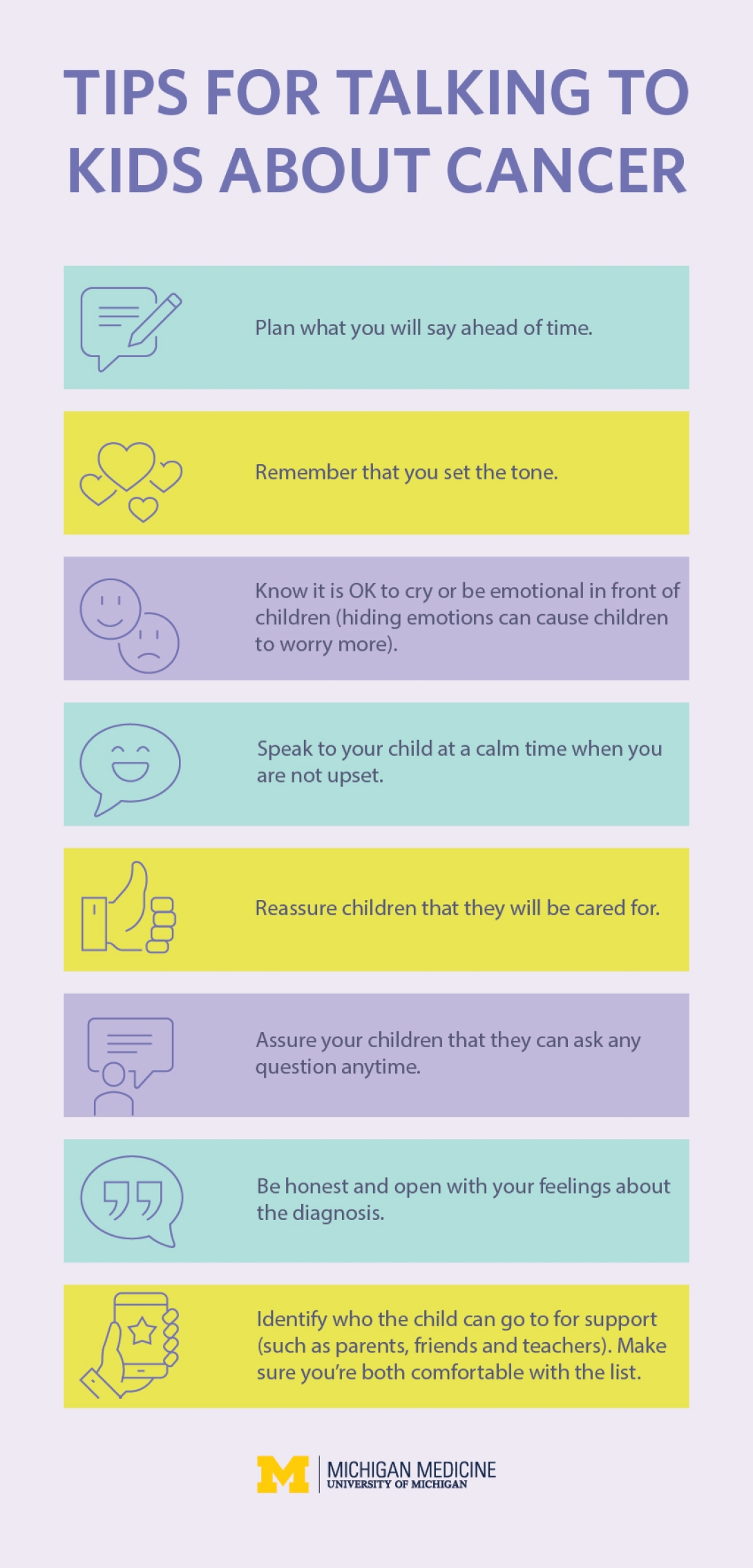
McTevia runs the Families Facing Cancer program, which partners with the American Cancer Society and the Cancer Support Community of greater Ann Arbor to provide parents with information on how to talk to kids of all ages about a cancer diagnosis.
SEE ALSO: 6 Cool Things to Know About Mott's Child and Family Life Team
Resources include:
-
One-on-one consultation based on your family situation
-
Developmentally based language and suggestions for speaking with kids
-
Information on parenting while ill
-
Interactive projects such as the "Hand in Hand" bead program for families to cope
-
Family tours of the Cancer Center as needed
McTevia counsels patients at the Cancer Center and provides tips and information based on a child's age. If a family has four children, chances are they'll need to be told in four different ways, she says, with younger children requiring simpler language and older children sometimes preferring privacy and time to process information.
She also shares coping activities for children who may regress or act out after learning a parent has cancer.
"Each patient usually has a specific concern, such as a younger child acting out in school. Many are worried they aren't doing this right," McTevia says. "Getting support or finding resources makes talking to kids one less thing they will need to worry about during treatment."
For more resources, visit Cancer.org to learn how to help children cope with a cancer diagnosis.

Explore a variety of health care news & stories by visiting the Health Lab home page for more articles.

Department of Communication at Michigan Medicine
Want top health & research news weekly? Sign up for Health Lab’s newsletters today!
